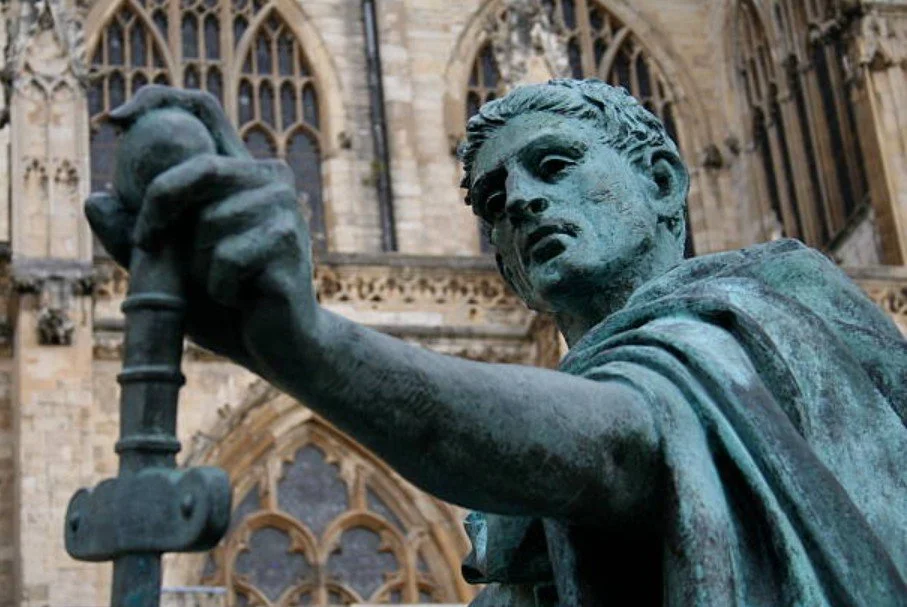Compassionate Abortion?
This June, take pride in supporting our efforts to contend for the freedom to proclaim the Christian faith.
A few years ago, a friend shared with me that her pastor and his wife were expecting a baby, a blessing that the whole church had celebrated. Then, at an ultrasound scan, the baby was diagnosed with a defect. As an obstetrician, I knew that surgery could easily correct the problem and would not cause suffering for the baby. I had seen children thrive under much tougher medical circumstances. Yet the physician told the parents that the baby was “incompatible with life” and that continuing the pregnancy would cause them and the baby to suffer. After praying, the pastor and his wife concluded that obtaining an abortion would spare the baby and themselves from further pain. To them, it was the compassionate option.
The story has many troubling aspects, not least of which is the parents’ decision based on inaccurate information about the child’s chance of surviving and thriving. But what troubles me most is that I encounter fellow Lutherans who have bought the narrative that it is better for babies with physical imperfections to be aborted rather than embraced and loved for whatever time the Lord allows them to live. I offer four problems with that mindset.
First, we all have imperfections. What degree of physical or genetic imperfection is sufficient to warrant death? Some say “a severe defect.” But severity varies from person to person. I knew a Lutheran ICU nurse who adopted three “severely” handicapped children who had been labeled as “incompatible with life.” She raised them until they died — between 5 and 20 years. These children’s limitations never stood in the way of her love for them. Nothing in Scripture tells us to kill our physically or genetically limited neighbors. Rather, even though our culture might consider the man lying beaten and near death on the road to Jericho to have a life-limiting condition, the Good Samaritan spared no expense in caring for him.
Second, we need to reflect on the concept of “relieving the child’s suffering.” We know from surgeries performed on children in the womb that they exhibit the same kind of responses to pain that we do. They withdraw from sharp objects touching them; they show an increase in heart rate and stress hormones. When doctors operate on patients in utero, they give them anesthesia that is separate from their mom’s. Unborn children feel pain from at least 12 weeks’ gestation. However, children in the womb with “life-limiting” diagnoses do not exhibit the normal signs of pain from those illnesses. In fact, the womb is the most comfortable place for them, as the mother provides for all the baby’s bodily needs. Cutting short these children’s lives to end their suffering makes no sense. In fact, performing an abortion causes intense suffering for the child. In this case, the real driver for abortion seems to be the assumption that it will end the psychological suffering of the parents rather than compassion for the child.
This leads to the third point: Aborting pregnancies with fatal diagnoses does not result in less suffering for parents. Studies comparing the outcomes of aborting such pregnancies versus carrying them to term using a service called perinatal hospice have found that parents who choose to carry the baby to term suffer less complicated grief and have less regret than parents who abort. In fact, overall, women who abort unplanned pregnancies have a greater risk of suicide, drug abuse and major depression than women who carry those pregnancies to birth.
Parents who are encouraged to abort their child with a “life-limiting” diagnosis are being told that this child is an “it,” a disposable clump of cells. But, in reality, women bond to the children in their wombs and grieve their loss. When a woman decides to end her child’s little life, it compounds and complicates grief. In contrast, perinatal hospice acknowledges that the parents of a child with a “life-limiting” diagnosis are parents. And this child in the womb is a son or daughter, a grandson or granddaughter, a brother or sister — a human being in God-given relationships with family members who love them. Giving birth to these little ones also gives extended family members the opportunity to acknowledge that relationship and grieve that tiny life. Why would we cut that life short?
The fourth point: What if the diagnosis was wrong? I had a son with a fatal congenital heart defect; he died at age two and a half. With my next pregnancy, the prenatal ultrasound showed that my second son had the same diagnosis. Two cardiac ultrasounds confirmed that he would share the fate of my first. Needless to say, the pregnancy was difficult. However, when he was born, he did not in fact have the fatal defect. Medicine is not perfect, yet we make life-ending decisions based on imperfect information. Am I against prenatal testing? No. But we must understand that no test is perfect. And perhaps we should recognize that God has given this child as a chance to show the beauty of this human being for as long as it pleases Him to share that baby’s life with us.
This view of all human life as a gift leads us as Lutherans to treat those in the womb as our tiniest neighbors. When we face difficult situations that call for us to lay down our lives for our neighbors, we are strengthened by seeing the meaning behind the suffering that we are asked to bear for one another. That is why killing our neighbor to avoid suffering has no place in Lutheran theology. It is why, for the last 2,000 years, the Christian church has consistently opposed abortion. Click here to continue reading.
Dr. Donna Harrison, M.D., is a board-certified physician and CEO of The American Association of Pro-Life Obstetricians and Gynecologists. This article was first published in and is reprinted here by permission of The Lutheran Witness.
Be Informed
Marriage as God designed and instituted it—between one man and one woman—is one of the sweetest gifts with which He can bless people. Why not ask your spouse a few questions to be reminded of how joyous and good it can truly be?
Be Equipped
Learn more about God’s marriage covenant and why it matters to you in a recent podcast with Rev. David Shadday, author of “Reclaiming the Heart of Marriage.”
Be Encouraged
“Watch and prepare for Jesus to return. Set your hearts on Him and on your life in Him. He is the beginning and end, the purpose and goal of your life. So there’s no need for tears as you see Him ascend. He is with you always. He will come back for His people soon. Then we will appear with Him in glory.” –Rev. Peter Sulzle
Luther grounded his understanding of civil government and its duties toward God in creation, teaching that rulers are a type of father. In the Large Catechism he wrote, “Thus we have two kinds of fathers presented in this commandment, fathers in blood and fathers in office, or those to whom belongs the care of the family, and those to whom belongs the care of the country. Besides these there are yet spiritual fathers.” Luther recognized the universal responsibility of all mankind to acknowledge and serve God in accordance with one’s particular station. All earthly rulers, whether of Israelite or Gentile nations, were expected to follow God’s Word. If they did not serve the Lord, like emperors Nero and Domitian, they would be held guilty by Him. Luther maintained a consistently positive estimation of Constantine and other Christian rulers throughout his writings — especially their aid in resisting the grasping tyranny of the papacy. He held up David and the other faithful kings of Israel as examples of the universal duty of rulers to acknowledge and serve God.
I’ve also sometimes struggled, I’ll confess, to reconcile my own civic duty to honor our nation’s flag with my Christian call to “fear, love and trust in God above all things.” The melody blaring from a speaker mounted high upon a tower reminds me eerily of church bells “chiming and calling” Christians to Sunday worship (LSB 645), or of a muezzin summoning Muslims to daily prayer. Although colors isn’t meant to be a spiritual act of devotion, the striking resemblance it bears to such ancient religious practices is hard to ignore.
Social media today functions much like the volatile crowds Gustave Le Bon described over a century ago when he observed, “Crowds are only capable of thinking in images, and are only to be impressed by images. It is by images alone that great leaders can be followed.” In the digital world, people aren’t working through truth with patience and reason; they’re reacting to symbols, slogans, memes, and bite-sized videos that bypass the mind and stir the gut and emotions.
"We will replace the frigidity of rugged individualism with the warmth of collectivism." Thus far Mamdani, whose words are chilling to the bone. Now we might counter that rugged individualism is a whole lot better than collectivism, and we'd be right. Collectivism means you lose your identity, you become a number, a statistic, a victim, and a ward of the state that cares not a whit about you.
Collectivism has the warmth of a Siberian gulag, a dark North Korean night. The fact that Mamdani can get away with such rhetoric, even after Communism has taken the lives of tens of millions of people, is frustrating.
What's a blessing, and what's a curse? When it comes to earthly matters, it's often not clear. Success can be a killer, especially when it comes with fame. Michael Jackson and Whitney Houston, Elvis Presley, for sure, and a whole host of late 60s heroes who died at the age of 27. The Beatles benefited from being four, so were less susceptible to lackeys.
There is no trouble too large for the government to solve, no concern too small for it to care about. Such words might be spoken of God, for whom nothing is impossible. Have you trials and temptations? Is there trouble anywhere? We should never be discouraged. What a friend we have in Mamdani?
We are hearing more and more that famous quotation from Martin Luther: “I’d rather be ruled by a wise Turk than by a foolish Christian.” The problem is, no one has been able to find that famous quotation in any of the voluminous works of Luther. It appears that the quotation is apocryphal. I suspect it may have originated as an attempt to explain the implications of Luther’s doctrine of the Two Kingdoms, as in, “Luther would have rather been ruled by a wise Turk. . .” which then was recalled as “Luther said he would rather have been. . . .” Read more from Dr. Gene Edward Veith here.
As 2025 ends, as faithful Lutherans, there is much to be thankful for as we have seen many positive developments for faith and freedom.
Pregnancy resource centers are booming while Planned Parenthood clinics are closing their doors. It looks like we are beginning to see a spiritual revival among young adults as they reject the emptiness of the culture they see around them. And several states have passed common-sense age verification laws, upheld by the U.S. Supreme Court, to protect innocent children from accessing graphic pornography online.
So, what is ahead for 2026? What policy advancements can we make to continue this positive momentum back towards faith and freedom?
Today is a dark day in the history of Illinois. Governor Pritzker—of whom every LCMS pastor in Illinois prays for each week and will continue to do so—signed into law . . . the “End-of-Life Options for Terminally Ill Patients Act,” granting terminally ill patients who have received a prognosis of six-months to live or less the ability to receive a pill in order to end their own lives.
A blessed Christmas to all of you “for today (many years ago) in the town of David a Savior has been born to you; he is Christ, the Lord. This will be a sign to you: You will find a baby wrapped in cloths and lying in a manger” (Luke 2:11-12). The life, death and resurrection of Jesus came as a blessing to the world even though the world didn’t deserve it and, even worse, was unreceptive to receiving Him as the gift that He was for them (see John 1:10-13).
We are slaves of Christ, but earthly slavery is not a good thing. Slavery is an institution of the fallen world. I am led to understand that even today there are fifty million people living as the property of others. I'm not sure what would happen if we added to that number those enslaved in various systems like North Korea. But bonds and fetters are not to be celebrated or commended, and if someone might say that it is a good thing, I have never seen anyone volunteer to be on slavery's receiving end. This is not to be a Pollyanna or to hide our heads in the sand. Throughout history, when one nation has conquered another, slavery has resulted. There will always be wars and rumors of wars, and life is messy. And yet slavery is not a good thing. And we can say so without losing sight of the fact that we as Christians are slaves of God, even as we are His children.
[Weeks ago], a group from Concordia Theological Seminary, Fort Wayne, gathered on the sidewalk that runs by the local Planned Parenthood. There were perhaps 15 of us in all, but what a mighty and faith-filled people. A young couple, a father with three or four little ones in tow, a student from Germany, another from Australia.
What of it? Things change, and prayers are answered. Just as few predicted the fall of the Soviet Union and the crumbling of the Berlin Wall, we were supposed to think that Roe v. Wade was set in stone, a law surer than the Ten Commandments. Stare decisis, we heard ad nauseam. But in step six wise and courageous judges, and we got the Dobbs decision. Now, that didn't happen by accident. It was a matter of persistent. Persistent prayer, persistent marching, persistent lobbying and electioneering. Why bother? 60 million little ones who have lost their lives. And still counting.
America has changed dramatically since the 1950s and 1960s. Back then, in the years after World War II, it was a halcyon time for religion in this country. Christianity was assumed in society; it was the default setting. Christians were denominationally focused; fights largely occurred within the faith. Now, the threat comes not only from within but also from without, from secularists and zealots determined to belittle Christianity and, if it were possible, bring about its downfall.
The times we live in call for a different mentality and a different strategy. They call for Christians of all stripes to band together to fight an enemy that seeks to curtail our influence in society and even — it’s hard to avoid this conclusion — completely silence our voice in the civic sphere.
Thanksgiving takes a lot of flak these days. Christmas haters are called “Scrooges” or “Grinches,” but haters of Thanksgiving are considered socially conscious and realistic. For many Americans, the fourth Thursday in November is an annoying holiday with racist origins — an excuse to force innocent citizens to gorge on poorly prepared, outdated foods while fraternizing with uncongenial relatives. It is, moreover, a day of hypocritical tension between trite demands to “be grateful” versus a Black Friday rush through the mall. Dismissively labeled “T-day” on social media, Thanksgiving is becoming mere no-man’s-land stuck between the two towers of Halloween and Christmas.
Thanksgiving worship services, held at the request of the government, seem strange in modern America. Some American Lutherans have wondered if this is appropriate. Our government allows the murder of babies. How can its leaders ask us to pray and give thanks? Others have questioned whether or not the annual request itself is a violation of the separation of Church and State, and still others have suggested that it might be a misunderstanding of the two kingdoms.
Is it alright for Christians to be involved with politics?
The Bible contains no specific command that either requires or forbids Christian involvement with politics. However, through the prophet Jeremiah, God teaches His people that they should, “Seek the welfare of the city where I have sent you into exile, and pray to the Lord on its behalf” (Jer. 29:57). In other places, God teaches that Christians should obey and pray for those in positions of civil authority (Matt. 22:21; Rom. 13:17; Titus 3:1; 1 Pet. 2:13). These passages, together with the general biblical teaching that Christians should care for and promote the welfare of their neighbor, would suggest that Christians should participate in the process of deciding how we, as a nation, shall live.
Having lost their religion, they start a new one. Folks who no longer read their Bible, or believe it, begin to create substitutes. I just heard of some crazed figure predicting that the Lord would come back in September. Of course, he could have, or he might come in November, or in 1000 years, but no one knows the day or hour, only the Father. And yet, then later in the day I see a 1990 video of Meryl Streep warning us about global warming, and calamities that would come in a "very short time." By the year 2000, it would be too late. Since then, global warming has turned into climate change, but the apocalyptic fever still runs high with a fervor that would make a Bible belt Pentecostal blush.
A good friend suggests that putting an end to gay marriage would be just another example of the nanny state, by which he means government overreach and intrusion into the private lives of our people. It's a cry for freedom from a libertarian point of view. In other news, I see that just 6 percent of Gen Z women think that personal success includes having children. Add to that the fact that a quarter of all children live in a home without dad. Add to that the fact that Senator Kaine, representative of many on the left, said that our rights come not from God but from government.
What to make of it? This summer I read The Communist Manifesto for the first time. Marxism is predicated on the idea that the state should have precedence over the family. Marxists see strong families as an obstacle to the state's influence. Homes are an example of private property, and family wealth promoted the practice of inheritance and intergenerational wealth. A traditional conservative says that God comes first, then family, and then the nation, which is not to be equated with the government. The Marxist seeks to put an end to all of that.
How should we fill in the blank? Traditionally Christian nations have a spotty record, but compared to what? A Hindu nation, where people are divided according to castes? A Muslim nation, where women are treated like property? A Communist nation that leads to wholesale slaughter? The Spanish Conquistador might be faulted, but consider the world of the Aztecs, the mass human sacrifice.
Then shall it be a secular nation? Is our nation somehow worse for having "In God we trust" on our money," for saying "under God" in the pledge? But is there a neutrality to strive for? Vacuums are soon filled, and we end up with cultural Marxism in which children are given puberty blockers, then hormones, leading almost inevitably to mutilating surgery. We end up with the destruction of the family. But this secularism is not neutral, to each his own. In some states, a parent can lose his child if they do not affirm their children's gender delusion, a delusion often encouraged by the secular state.
Psalm 68:5 reminds us that God acts as a father to the fatherless. In the great hymn "Praise the Almighty, My Soul, Adore Him," we sing, "He helps his children in distress, the widows and the fatherless." Do we still care about such things? As a society? In America, one in four children live in a home without dad. 40 percent of children are born to unwed mothers. That's what happens when marriage is redefined to suit adult desires. Some don't know their dads, others live in broken homes. Divorce leads mostly to kids with mom, dad gone.
We’ve heard it said lately that what we’re seeing in our culture is sin — and that’s true. But let’s not stop there. What we’re seeing is not simply a lack of virtue in a particular political party or a few mentally ill individuals making poor moral choices. What we are witnessing is a culture-wide descent into paganism—the same kind of paganism the prophets condemned in the Old Testament. And mark this: it is not new. Instead, it is ancient and dark. And it is very definable.
The prophets—men like Amos, Micah, Habakkuk, and Zephaniah — weren’t confused about the character of the nations around them. They saw it plainly.
As I’ve shared online, for the last few days I’ve been laboring to write a response to the political assassination of Charlie Kirk, trying to put words together that express a proper response to the shock and horror of the evil violence perpetrated against a Christian believer who understood the limitations of politics and the beautiful salvation message that only God could accomplish in Jesus. A person who was willing to dialogue and debate all comers in the hope of demonstrating the truth of what he said and believed. He was proud of the foundational principles of individual liberty, religious freedom, limited government, educational freedom/choice, and the importance of faith, family, freedom to live self-governed lives . . . and for that he was executed. That should truly shock us all to our core.
After finishing college at Seward, my wife Kathy and I served as lay missionaries in a remote Cree Indian village in Ontario, Canada. One day we decided we’d go for a snowmobile ride. I pulled the machine in front of our little shack. I glanced behind me to see Kathy hopping aboard, and I took off. I headed down the skidoo trail on the frozen lake on a bright clear, frigid day, chatting happily with my dear wife (or so I thought). I had made it nearly a half-mile before I realized that no one was talking back. Suddenly I did a hard double take and turned to see the empty seat right behind me. Looking back at the distant village, she was nowhere to be seen. Turns out I had taken off just as she straddled the seat, but before she’d sat down. . . . We laughed about it then, and still do to this very day.
It’s not a happy thing to read that so many of our countrymen are “nones,” belonging to no church and adhering to no way of paying homage to God. How do we raise children in a no-land, where their deepest beliefs will be met with what’s sometimes more discouraging than enmity, with the shrug of indifference and incomprehension?
I think we must bear in mind the character of this nothing. It is not deep — it cannot conceivably be deep — but it is broad, like a vast slick of muddy water and wreckage after a flood, shallow as a few inches in most places, but lapping at every post and foundation in sight.
At the 1995 synodical convention, the Synod delegates adopted resolution 6-02 titled "To Speak Out against Legalization of Assisted Suicide" (euthanasia) which reads as follows:
Whereas, The Lutheran Church—Missouri Synod affirms the sanctity of human life and recognizes the reality of human suffering; and
Whereas, Any attempt to legalize assisted suicide is an affront to the Lord, who gives life, and opens the door for abuse and future legislation that would deny the freedom of many; and
America is a gift. Rights are God given, based on the inherent dignity of man. The horrible theory of evolution undermines this truth. We are likewise told that rights are granted by earthly governments. But the created order is such that man bears the image of God, even fallen. This truth is seen already in an ultrasound. In a sense, these rights are negative. I do not have a right to take your property, but then, you have no right to take mine. A man may not be imprisoned except for compelling reasons. The family comes before the state, and therefore children belong not to the state, but to the father and mother. The right to bear arms is simply an extension of the truth that I have a right to defend my family and my home. No one is obligated to listen to me, but I have a right to free speech. No one is obligated to give me stuff, but I have the liberty to earn it.
Our Founding Fathers are indeed the fathers of all Americans. DEI taught us to despise them, to concentrate on their faults, to think of ourselves as somehow more enlightened. Critical theory is all about destruction, about seeing through something so that you can no longer see the thing itself. DEI is the philosophy of the scoff and sneer.
But as Americans, we do well to think on the God of providence and to celebrate this day with thanksgiving. Now, mind you, I honor all peoples as they sing their anthems, giving thanks for their own special heritage. But our heritage is a cornucopia, a legacy that we are called to live up to.
475 years ago, Magdeburg, Germany, was under siege by her own emperor, Charles V. It was the last Lutheran city remaining in Germany only four years after the death of Martin Luther. At issue was the preaching of the Gospel and the administration of the Sacraments. The highest authority in the land was demanding that the city churches re-institute Roman worship practices.
The city officers faced a difficult choice. Should they abandon the scriptural doctrine and practice restored by the Lutheran Reformation? Or should they take up arms against the God-ordained temporal authority? The pastors and theologians of the city penned the Magdeburg Confession to instruct the city councilmen of their God-given duty.
Two kinds of righteousness? I suppose, but not as it's often spoken about in our midst. There is civic righteous, which is to live in accordance with the natural law and may rightly describe the life of anyone, with or without Christ. Civil righteousness, reverence for life, for marriage, for the rights of property, and the like is a good thing. A Mormon may then live a life of civic righteousness, though he cannot be truly righteous or declared righteous.
We are told that the righteousness that comes from God is vertical and differs from all human righteousness. But such a notion needs to be challenged. The righteousness that we receive from God is, in fact, the righteousness lived on the horizontal plane. Many Christians think of righteousness as a gift from God that finds an opening in the cross of Christ. But that is misleading. The righteousness of God is, in fact, the righteousness of Christ, imputed to us because of Christ's active and passive obedience, even unto His death as a sacrifice for our sins. The likes of Forde and Paulson mislead, saying that Christ came forgiving, and for that He was murdered. By no means. Christ's forgiveness was made possible by the Father's sacrifice of His Son, as well as by Christ actually fulfilling, not putting an end to, the Law.
Recently, one among us complained that the LCMS has more often taken positions on the Republican side of things, with nothing from the Democrat agenda. I wonder if such complaints, from an opposite point of view, are made in the ELCA. What of it? Among the so-called Republican views cited were articles on being pro-life and warning against the rainbow revolution and the trans crisis. But these are not positions based on politics, though politics matter as a matter of justice and protection, but are essential to our humanity. Those who favor abortion, gay marriage, and the transgender agenda are in fact at war with the God of Genesis, the Author of creation. About such things there should be no debate among us, for to deny male/female, to deny the child in the womb is to deny Christ, who Himself lived in the womb of Mary, reiterated the truth of creation (Matthew 19, Mark 10) and came to be the groom for His bride, the Church.































